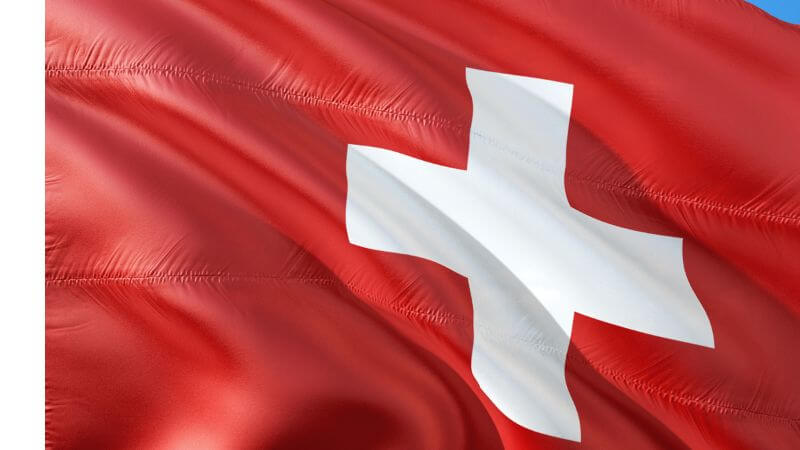Switzerland, a country known for its stunning landscapes, impeccable watches, and delicious chocolate, is also home to a fascinating array of last names that reflect its rich cultural heritage. Swiss last names often reveal insights into the historical, linguistic, and social aspects of this alpine nation. In this article, we will embark on a captivating journey through the origins, meanings, and significance of Swiss last names, shedding light on the diverse tapestry of Swiss ancestry.
Switzerland is a stunning country with a rich cultural history. It is home to people of a wide variety of racial and linguistic backgrounds. The Swiss last names also reflect this multilingualism.
Many different languages—including Swiss German, Old German, and Middle High German—are represented in the etymologies of Swiss surnames. While Swiss surnames can be found in a wide variety of languages, the vast majority are either occupationally related or toponymic (referring to the place the family originally lived).
People’s surnames reveal information about their ancestors’ social standing. It’s worth noting that some surnames in Switzerland are shortened versions of real names. The origin and history of a Swiss person can be learned through their surname.
Switzerland’s unique linguistic diversity plays a significant role in shaping its last names. With four official languages—German, French, Italian, and Romansh—Swiss surnames bear witness to the country’s linguistic melting pot.
German-based last names dominate the Swiss-German-speaking regions, while French and Italian influences prevail in the western and southern parts of the country, respectively.
Romansh, spoken by a minority in the canton of Grisons, contributes to the linguistic patchwork as well.
German Influence: Common and Diverse
German surnames form the largest group in Switzerland due to the prevalence of Swiss-German dialects. They often derive from occupations, personal characteristics, geographic locations, or patronymic origins.
For instance, Müller (miller), Schneider (tailor), and Fischer (fisherman) are among the most common German-based last names in Switzerland. Surnames like Meier, Huber, and Schmid, with various spelling variations, are also widely found and represent occupational origins.
French Flair: Elegance and Nobility
In the French-speaking regions of Switzerland, surnames reflect the influence of French culture, history, and nobility. Last names such as Dupont, Durand, and Martin, which are also prevalent in France, are found in abundance.
French surnames often indicate family lineage, with prefixes like “de” (meaning “of” or “from”) highlighting noble or aristocratic origins. Examples include De La Croix, De La Fontaine, and De La Rochefoucauld, which trace their roots back to the French nobility.
Italian Origins: Romance and Identity
The Italian-speaking canton of Ticino and a small Italian-speaking region in the canton of Grisons contribute to Switzerland’s Italian heritage. Italian surnames in Switzerland echo the passion, romance, and regional identities of Italy.
Surnames like Rossi (red), Bianchi (white), and Esposito (exposed) are common examples of Italian origin. Additionally, the use of suffixes such as “-ini” and “-etti” indicates regional identities and signifies a connection to specific Italian towns or provinces.
Romansh Rarity: Preserving Ancient Ties
Romansh, a Romance language spoken by a small minority in Switzerland, has its own unique last names that are deeply rooted in the region’s ancient history. Romansh surnames often reflect the natural surroundings, ancestral occupations, or patronymic origins.
Names like Cavegn (oak), Cadruvi (weaver), and Andrea (son of Andreas) are illustrative examples of Romansh surnames. Despite their rarity, these names contribute to the preservation of Romansh heritage and identity.
Swiss-German Compounds: A Linguistic Puzzle
Swiss-German-speaking regions exhibit a distinctive naming tradition by creating compound last names. These surnames are formed by combining two or more words, often reflecting an occupation, location, or descriptive element. For instance, Rüegg-Stürm (smoke storm) indicates a connection to a place named Stürm, whereas Häberli-Schmidt (small farmer
-smith) suggests a combination of two occupations. The creativity and complexity of Swiss-German compounds add a unique flavor to the Swiss naming landscape.
Symbolic Meanings: Insights into Family History
Beyond linguistic origins, Swiss last names often hold symbolic meanings that provide insights into family history. Animal names like Fuchs (fox), Bär (bear), and Hirsch (deer) may indicate ancestral connections to those creatures, either as totems or through occupations associated with hunting or wildlife.
Similarly, nature-related names such as Baumgartner (tree gardener) and Bergmann (mountain man) imply connections to specific environments or occupations within them.
Some common Swiss surnames and their definitions are provided below.
Ammann
This is a common Swiss surname that has Germanic roots and means “retinue” or “retainer” and denotes a background in administration.
Andros
The popular Swiss surname Andros derives from the Greek word for “man,” Andreas.
Bachmann
These two Middle High German words, “bach” (stream) and “mann” (man), form the basis of a toponymic Swiss surname.
Baumann
The surname Baumann means “farmer” and comes from a medieval Germanic culture.
Baumgartner
It is believed that the original meaning of this Swiss surname was “orchard,” which is where the word “Boumgarte” comes from.
The Swiss surname Berge originates from the word “berg,” which means “mountain” or “hill,” and thus refers to someone who lives in such a location.
Bieri
The French form of Peter, Pierre, from which we get the English Peter and the Greek word for stone, Petros, is the source of this Swiss name.
Blaser
The Middle High German “blasarre” was the source of the Swiss surname Blasarre, which means “wind musician.”
Brucke
The German word “Brucke” means “bridge” and gives rise to the English name “Brucker Brucker,” which means “bridge.”
Brunner
The surname Brunner is a Germanic form of the personal name Brunn, which means “fountain” or “spring” in English.
Bucher
The word “bouche” originally meant “beech tree” in Middle High German, which is where this surname got its start.
Tobias Buhler
The word “hill” (or “buehel”) in Old German is where the name originates.
Burri
The nickname “Burkhart” gave rise to this last name. The name derives from the German words “burg” for fort and “hart” for brave.
Caflisch
Caflisch is a Swiss German diminutive of Kalbefleisch, which means “calf meat.”
Camenzind
This Swiss last name derives from the occupation of chimney and fireplace builder.
Christen
The Latin word “Christianus” means “a Christian,” which is where the Swiss last name “Christian” comes from.
Derrer
Derived from the German verb “darren,” which means “to soak flax/hemp,” the name is of Germanic origin.
Egger
The German word for “harrow” or “plough” is “eggen,” so the name “egger” means a farmer or peasant.
Elmer
A person with this surname is from the Swiss village of Elmer, located in the canton of Glarus.
Fankhauser
The Germanic element “fang haus,” meaning “a capture house,” is the source of this Swiss surname.
Favre
The surname Favre is derived from the Latin word “faber,” which can be translated as “smith,” “craftsman,” or “one who works with one’s hands.”
Fischer
The German word for “fisherman” is “Fischer,” hence the name “Fischer.”
Fluckiger
This last name, which comes from the German verb “vlicken,” means that the bearer was engaged in the trade of patching shoes or textiles.
Fricker
Originating as a toponymic surname, “Fricktal” identifies a resident of the Swiss canton of Frick.
Fuchs
The Old High German word “fuhs,” meaning “fox,” is the source of this Swiss surname.
Furrer
This Swiss family name originates with the word “furrer,” which means “cleft in the ground.”
Gasser
A resident of a street or alley, as suggested by the surname’s origin from the German word for “gasse,” “gasse” is the source of this Swiss surname.
Gerber
German for “tanner,” the term “gerber” describes someone who works in the leather tanning industry.
Girtman
A maker of belts or straps, as suggested by its origins in the German verb gurten (to grid).
Final Thoughts On Swiss Last Names
The linguistic, cultural, and historical diversity of Switzerland is reflected in the country’s various surnames.
These surnames, whether they are of German, French, Italian, or Romansh origin, each tell a story about the occupations of ancestors, geographic locations where they lived, noble lineages they descended from, and regional identities.
They come together to create a vibrant tapestry that brings the complex strands of Swiss heritage into one cohesive whole.
By delving into the history of Swiss family names, we can peel back the complex layers of this alpine nation’s long and illustrious past, bringing us closer to the people, places, and customs that have helped to shape it.
Also Read: 20+ Best Italian Last Names Starting With C (With Meanings)
Follow Us: Facebook | Instagram | Twitter | Youtube | Pinterest
I am sure you are part of our amazing page Baby World To stay updated With posts and videos.




